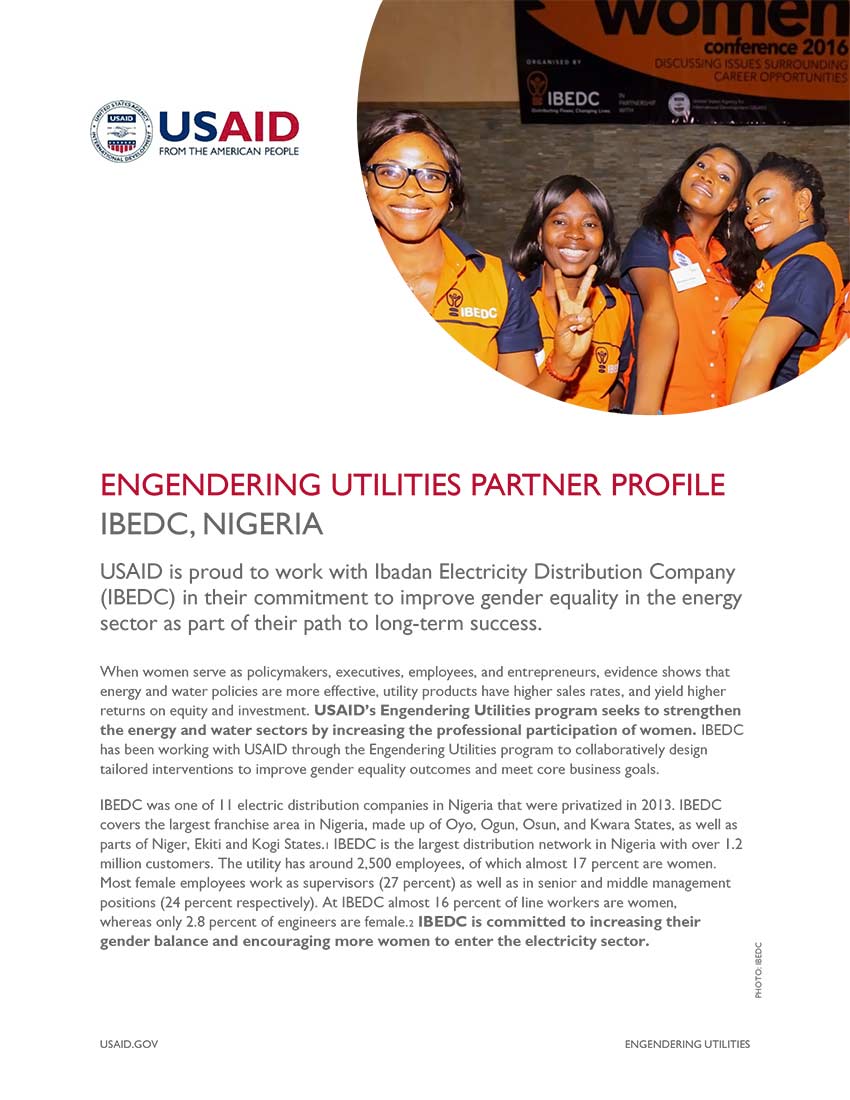- Energy Home
- How We Work
- Programs & Initiatives
- Smart Utilities
- Asia EDGE
- Auction Design Support to Colombia
- Energy Auctions for Kazakhstan’s Green Economy
- Energy Efficiency for Development
- Engendering Utilities
- About
- Business Case
- Approach
- Partners
- OSHEE, Albania
- SONABEL, Burkina Faso
- EDESUR, Dominican Republic
- DELSUR, El Salvador
- EEU, Ethiopia
- Energo-Pro, Georgia
- GRIDCo, Ghana
- BRPL, India
- TPDDL, India
- EDCO, Jordan
- IDECO, Jordan
- Miyahuna, Jordan
- KenGen, Kenya
- Kenya Power
- KOSTT, Kosovo
- LEC, Lesotho
- LEC, Liberia
- EGENCO, Malawi
- EDM, Mozambique
- EKEDC, Nigeria
- IBEDC, Nigeria
- ISWSC, Nigeria
- EVN, North Macedonia
- LASURECO, Philippines
- ZCWD, Philippines
- REG, Rwanda
- OFOR, Senegal
- Senelec, Senegal
- EVN, Vietnam
- Resources
- Stories
- Institutional Framework for Auctions in Mexico
- Powering Agriculture
- The USAID-NREL Partnership
- Scaling Up Renewable Energy
- EmPOWERing Women and Girls
- Competitive Energy Procurement
- Toolkits
- Monitoring & Evaluation
- Resources
- Stories
Speeches Shim
Engendering Utilities Partner Profile
IBEDC, one of 11 Nigerian electric distribution companies privatized in 2013, covers the largest franchise area in Nigeria, as well as parts of Niger, serving over 1.7 million customers. USAID is proud to work with IBEDC in their commitment to improve gender equality in the energy sector as part of their path to long-term success.
Nigeria is the largest economy in sub-Saharan Africa, but limitations in the power sector constrain growth. Currently Nigeria has the potential to generate 12,522 megawatts (MW) of electric power from existing plants, but most days is only able to generate around 4,000 MW, which is insufficient. In 2017, only 54 percent of the population had access to electricity.
Nigeria has a national gender policy that focuses on the empowerment of women and advocates against any form of discrimination against women. However in daily life women still experience significant gender gaps. Women make up 45 percent of the total labor force in Nigeria, however, Most Nigerian women work in services and only 13 percent of working women are wage and salaried workers compared to 23 percent of men. Moreover, Nigeria’s gender pay gap is one of the highest in the world: On average a man earns 54 percent more than a woman.
USAID is partnering with IBEDC through the Engendering Utilities program to assist in the development and implementation of their tailored action plan to incorporate gender equity into their business practices. The action plan included targeted interventions, such as the institution of gender-equitable job candidate attraction and selection processes, competency-based hiring processes to reduce gender bias, and the institution of gender-equitable employee development and succession planning. IBEDC’s HR specialists also took part in Engendering Utilities’ customized Gender Equity Executive Leadership program, in partnership with Georgetown University. This partnership has resulted in significant and substantial progress toward a gender-equitable future for the company.


Comment
Make a general inquiry or suggest an improvement.